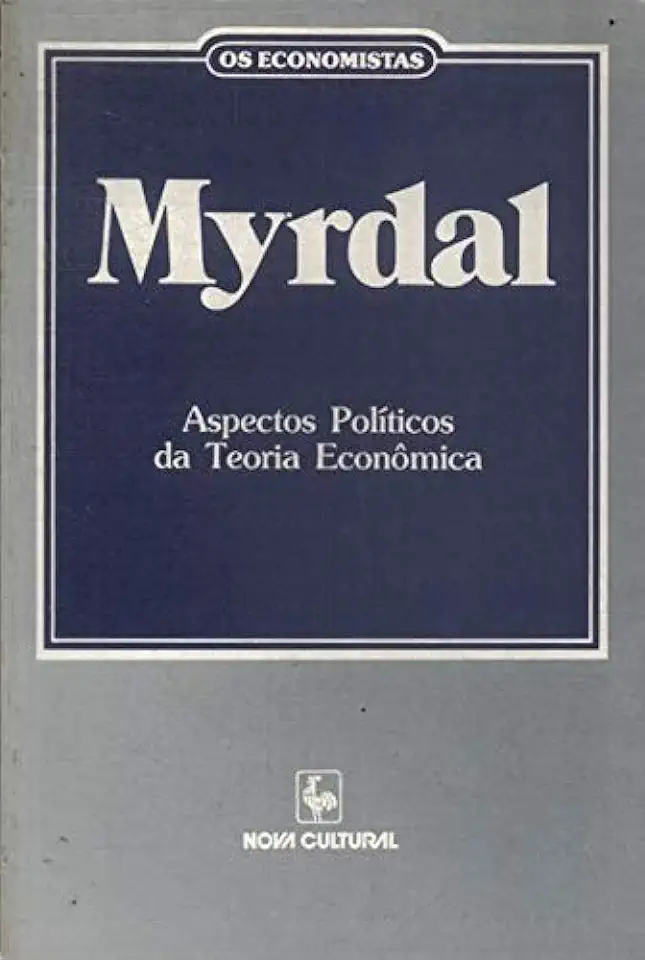
Political Aspects of Economic Theory - Gunnar Myrdal
Political Aspects of Economic Theory by Gunnar Myrdal
A Masterpiece of Economic Thought
In his seminal work, "Political Aspects of Economic Theory," Gunnar Myrdal presents a groundbreaking analysis of the relationship between politics and economics. Myrdal argues that economic theory cannot be separated from the political context in which it is applied, and that a truly comprehensive understanding of economic phenomena requires an examination of the political forces that shape them.
A Challenge to Traditional Economic Thought
Myrdal's work challenges the traditional view of economics as a value-free science, arguing instead that economic theories are inherently political and reflect the values and interests of the societies in which they are developed. He demonstrates how economic policies are often influenced by political considerations, such as the desire for power, the pursuit of special interests, and the maintenance of social stability.
A Call for a More Ethical Economics
Myrdal's analysis leads him to call for a more ethical approach to economics, one that takes into account the social and political consequences of economic policies. He argues that economists have a responsibility to use their knowledge to promote social justice and human well-being, rather than simply serving the interests of the powerful.
A Must-Read for Economists and Policymakers
"Political Aspects of Economic Theory" is a must-read for economists, policymakers, and anyone interested in understanding the complex relationship between politics and economics. Myrdal's insights are as relevant today as they were when the book was first published in 1953, and his work continues to inspire scholars and practitioners alike.
Key Themes in the Book
- The interdependence of politics and economics: Myrdal argues that economic theory cannot be separated from the political context in which it is applied, and that a truly comprehensive understanding of economic phenomena requires an examination of the political forces that shape them.
- The political nature of economic policies: Myrdal demonstrates how economic policies are often influenced by political considerations, such as the desire for power, the pursuit of special interests, and the maintenance of social stability.
- The need for a more ethical economics: Myrdal calls for a more ethical approach to economics, one that takes into account the social and political consequences of economic policies. He argues that economists have a responsibility to use their knowledge to promote social justice and human well-being, rather than simply serving the interests of the powerful.
Why You Should Read This Book
- Gain a deeper understanding of the relationship between politics and economics: "Political Aspects of Economic Theory" provides a comprehensive analysis of the complex interplay between political and economic forces, offering a unique perspective on how economic policies are shaped and implemented.
- Challenge your assumptions about economic theory: Myrdal's work challenges the traditional view of economics as a value-free science, demonstrating how economic theories are inherently political and reflect the values and interests of the societies in which they are developed.
- Be inspired to think more critically about economic issues: Myrdal's insights encourage readers to think more critically about economic issues, and to consider the social and political implications of economic policies.
Order Your Copy Today!
"Political Aspects of Economic Theory" is a must-read for anyone interested in understanding the complex relationship between politics and economics. Order your copy today and start your journey towards a deeper understanding of the world around you.
Enjoyed the summary? Discover all the details and take your reading to the next level — [click here to view the book on Amazon!]